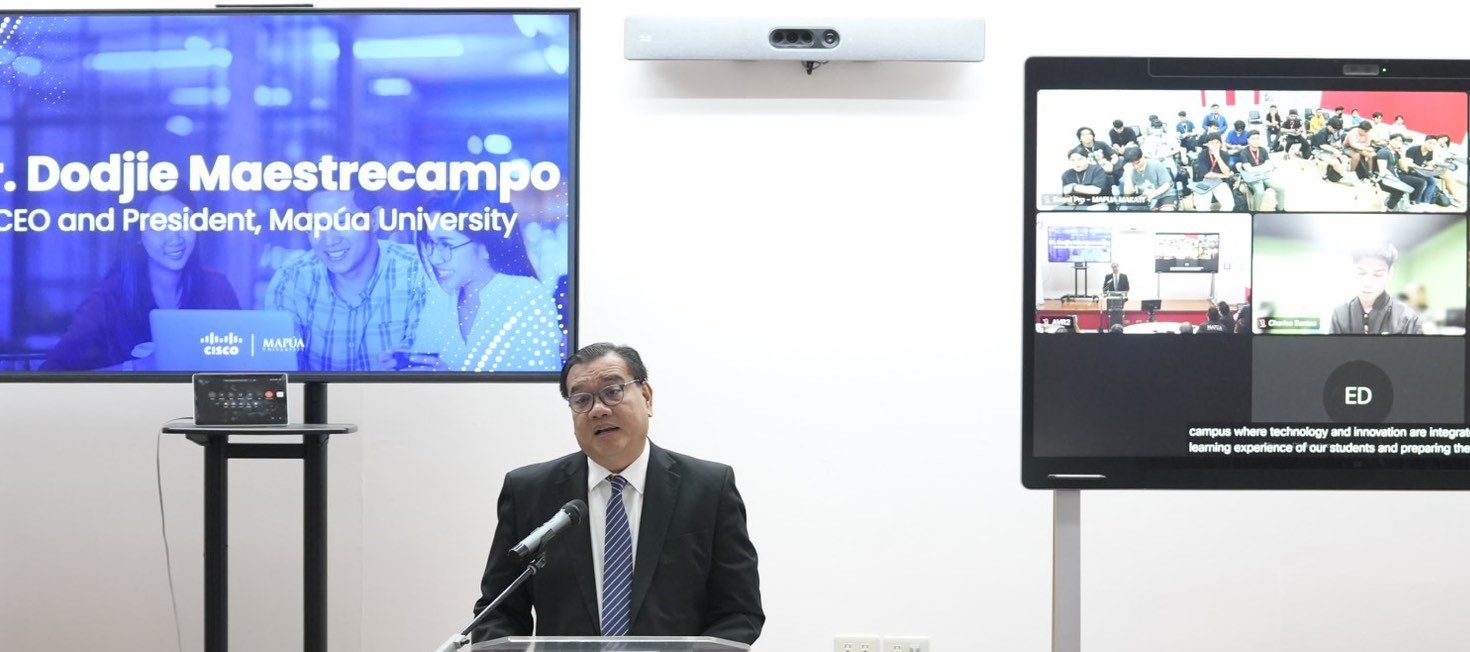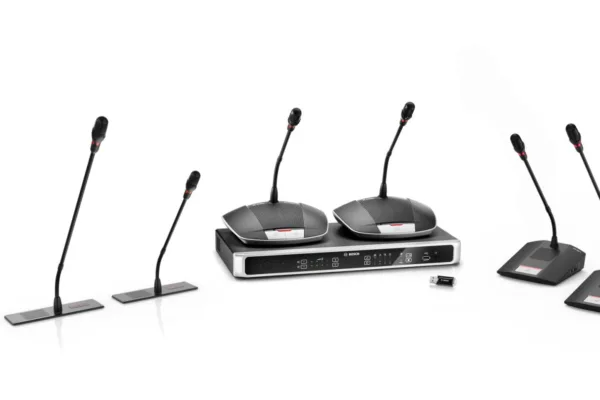by Jan Michael Carpo, Reporter
In a bold move to modernize education in the Philippines, Mapúa University, a premier engineering and technological institution, has introduced AI-driven digital classrooms set to redefine the learning experience of their students starting in August this year.
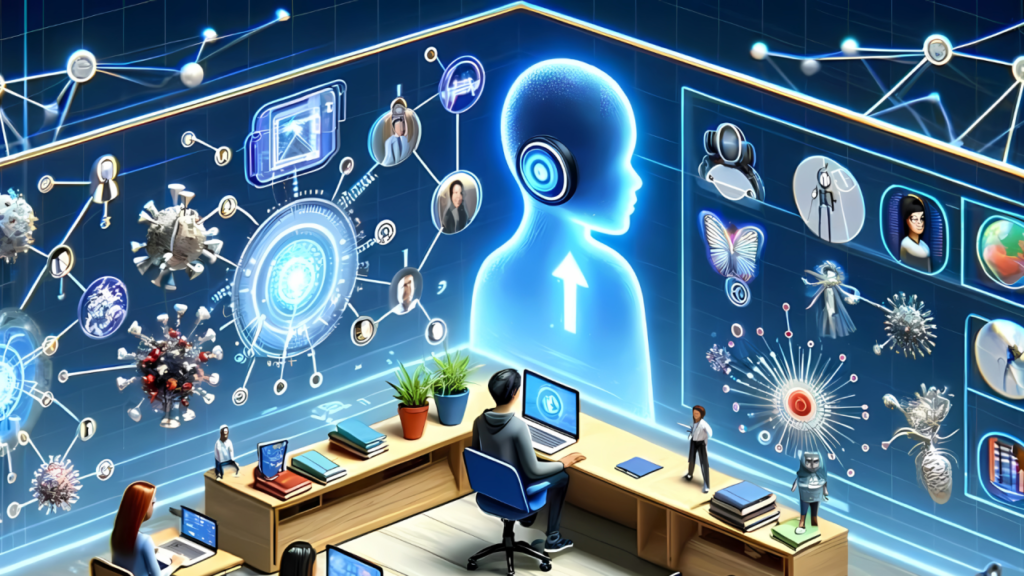
IMAGE CREDIT: https://www.linkedin.com/pulse/ai-remote-education
This initiative, developed in collaboration with Cisco as part of its Country Digital Acceleration (CDA) program in the Philippines, UGNAYAN 2030, marks a significant shift from traditional classrooms to a more dynamic, flexible, and inclusive digital learning environment.
The digital classrooms are a key component of Mapúa’s innovative Tri-X (triple experience) teaching and learning framework. This framework empowers students to choose their mode of participation — whether face-to-face, synchronous, or asynchronous learning — catering to diverse learning preferences and schedules.
This flexibility is poised to break down traditional educational barriers, making learning more accessible and personalized.
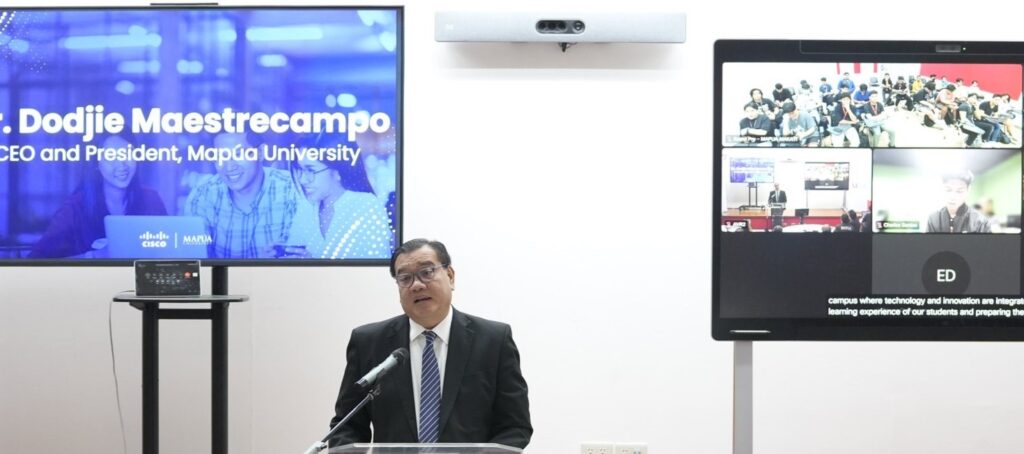
Dr. Dodjie Maestrecampo, President and CEO of Mapua University, shares how they are breaking barriers in learning modalities at Mapúa University
Dr. Dodjie S. Maestrecampo, President and CEO of Mapúa University, emphasized the transformative impact of these digital classrooms during a media tour.
“The future of education is here,” announced Dr. Dodjie S. Maestrecampo, President and Chief Executive Officer of Mapúa University, during a media tour of the digitalized classrooms. “This is a big step towards our vision to foster sustainable socio-economic growth through innovation, digital transformation, and lifelong education.”
“Our learning modalities at Mapúa are now breaking barriers by creating limitless opportunities for personalized, accessible learning. We are excited for this next chapter of our partnership with Cisco to enable students to achieve better learning outcomes with greater flexibility and personalized learning with our digital classrooms,” he further stated.
Mapúa University’s AI-powered digital classrooms
The digital classrooms, supported by ICT solutions integrator Microdata, are equipped with Cisco’s AI-powered collaboration tools and smart cameras, thus creating an engaging, secure, and hybrid learning experience.
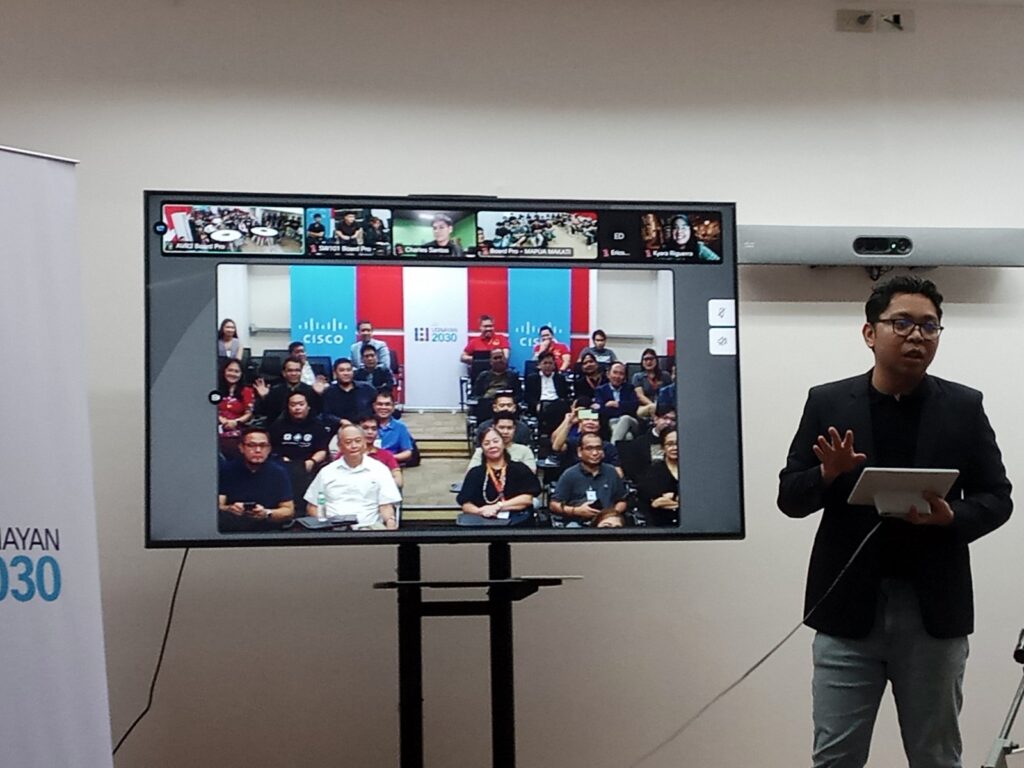
Ericson Dimaunahan, Director of Mapua University Center for Teaching and Digital Learning
According to Ericson Dimaunahan, Director of Mapua University Center for Teaching and Digital Learning, some of the key features of their digital classrooms are as follows:
- Webex Boards –enables students and teachers to join video meetings, serve as digital canvases for whiteboarding, and annotate shared content.
- AI-Powered Features in Webex Suite — optimizes speakers’ voices, automatically crops videos of remote participants for better visibility, and offers real-time closed captions, making classes more accessible.
- AI-Generated Meeting Summaries — provides highlights, chapters, and action items in real-time, helping students catch up on missed content.
- Meraki Cloud-Managed Smart Cameras — enhances security inside the classroom with wide-angle, fixed-focus lenses that provide panoramic coverage, even in low lighting.
- Webex Enterprise-Grade Security — ensures all communications are encrypted and secure, verifying every learner, and protecting every device and browser.
Currently, Mapúa has established five digital classrooms: three at the Intramuros Campus, offering courses in Engineering, Architecture, Liberal Arts, and Athletics, and two at the Makati Campus, providing courses in Information Technology, Media Studies, Business, Health Sciences, and Nursing.
These classrooms will officially open for the upcoming academic year, facilitating course lectures, extracurricular activities, and inter-campus planning sessions.
Bolstering the Philippines’ digital resilience
Cisco’s CDA program, UGNAYAN 2030, aims to bolster the Philippines’ digital resilience by addressing gaps in connectivity, collaboration, and cybersecurity. This strategic partnership between government, industry, and academia is crucial in accelerating the country’s national digital agenda.
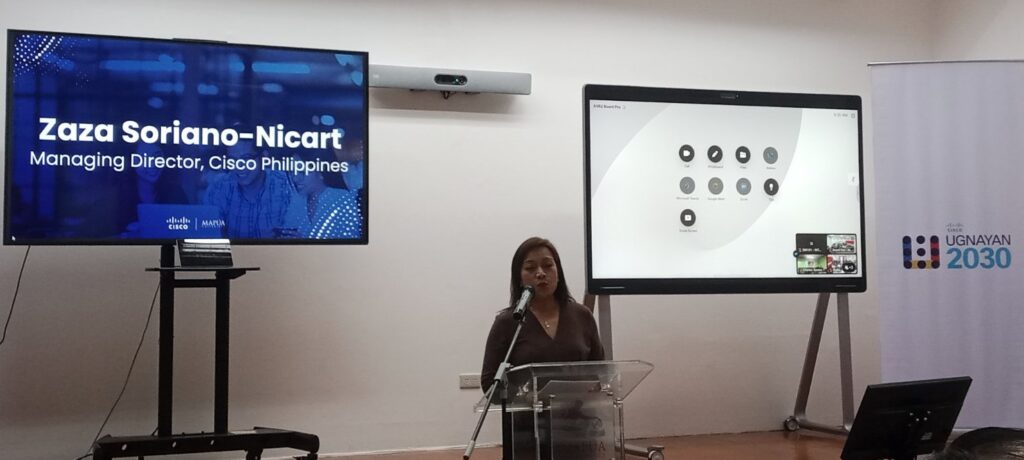
Zaza Soriano-Nicart, Managing Director of Cisco Philippines, while delivering a speech
“Technology is transforming the way we work, learn, and live,” shared Zaza Soriano-Nicart, Managing Director of Cisco Philippines. “We are excited to support Mapúa University’s transformative journey to become a leading innovation hub that utilizes cutting-edge teaching and learning methods under UGNAYAN 2030.”
“By helping the university leverage AI and inclusive collaboration tools in the classroom, we are closing the learning divide, enhancing student access, and ensuring quality education for every student nationwide so that no one gets left behind,” she added.
The introduction of these smart classrooms is a significant step towards Mapúa’s goal of becoming a full-fledged smart campus. Looking ahead, the university plans to leverage these digital classrooms to extend education beyond borders, fostering an internationalized educational experience for its students.
By integrating advanced technology and flexible learning options, Mapúa University is enhancing the quality of education and setting a precedent for other institutions in the Philippines and beyond. This initiative underscores the importance of digital transformation in education, ensuring that learning remains relevant, inclusive, and accessible in the digital age.




